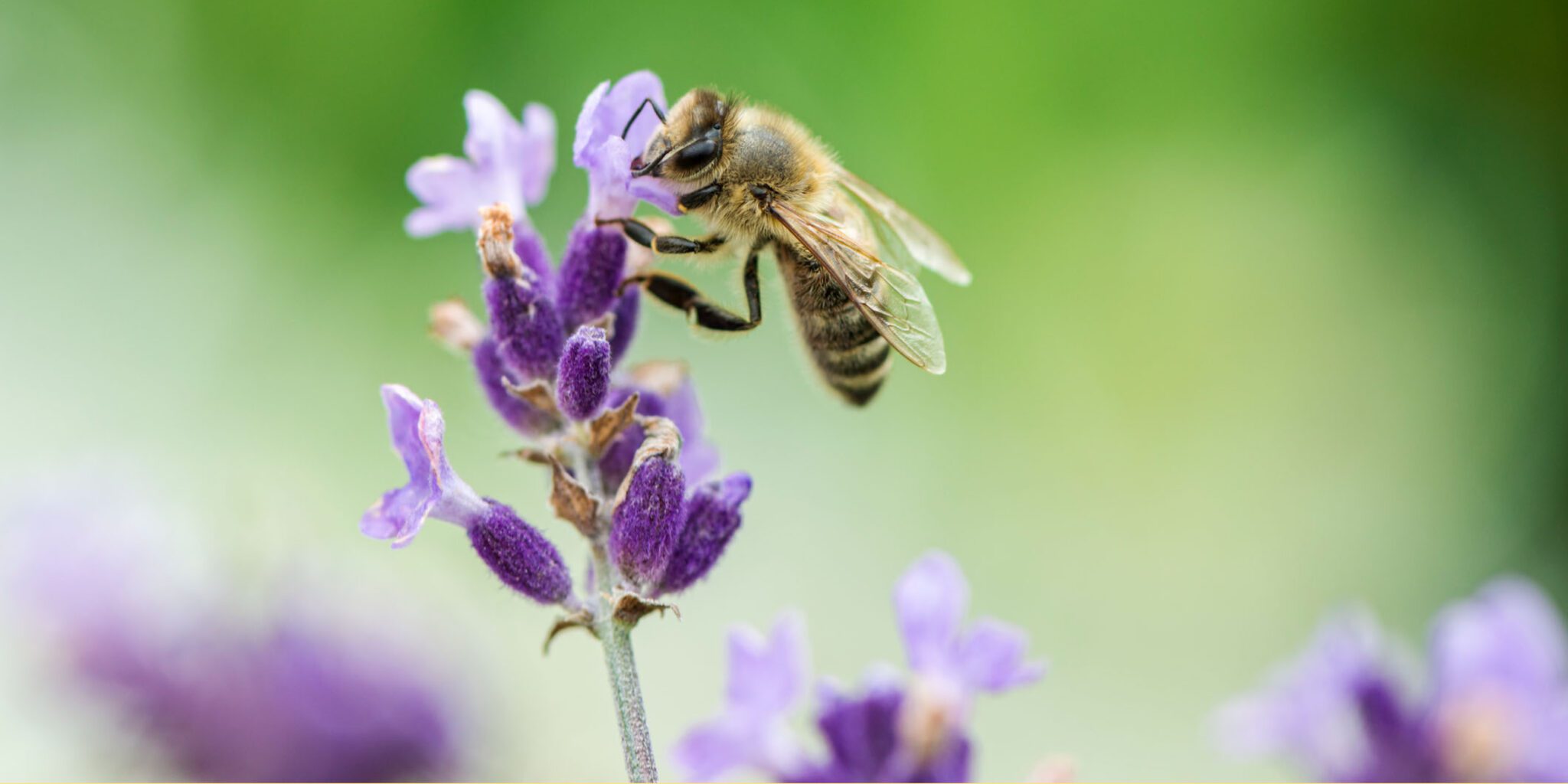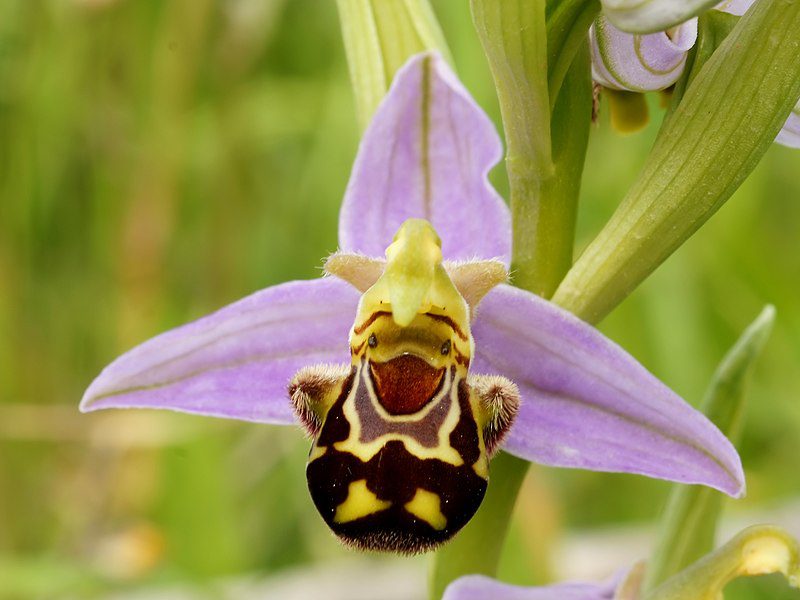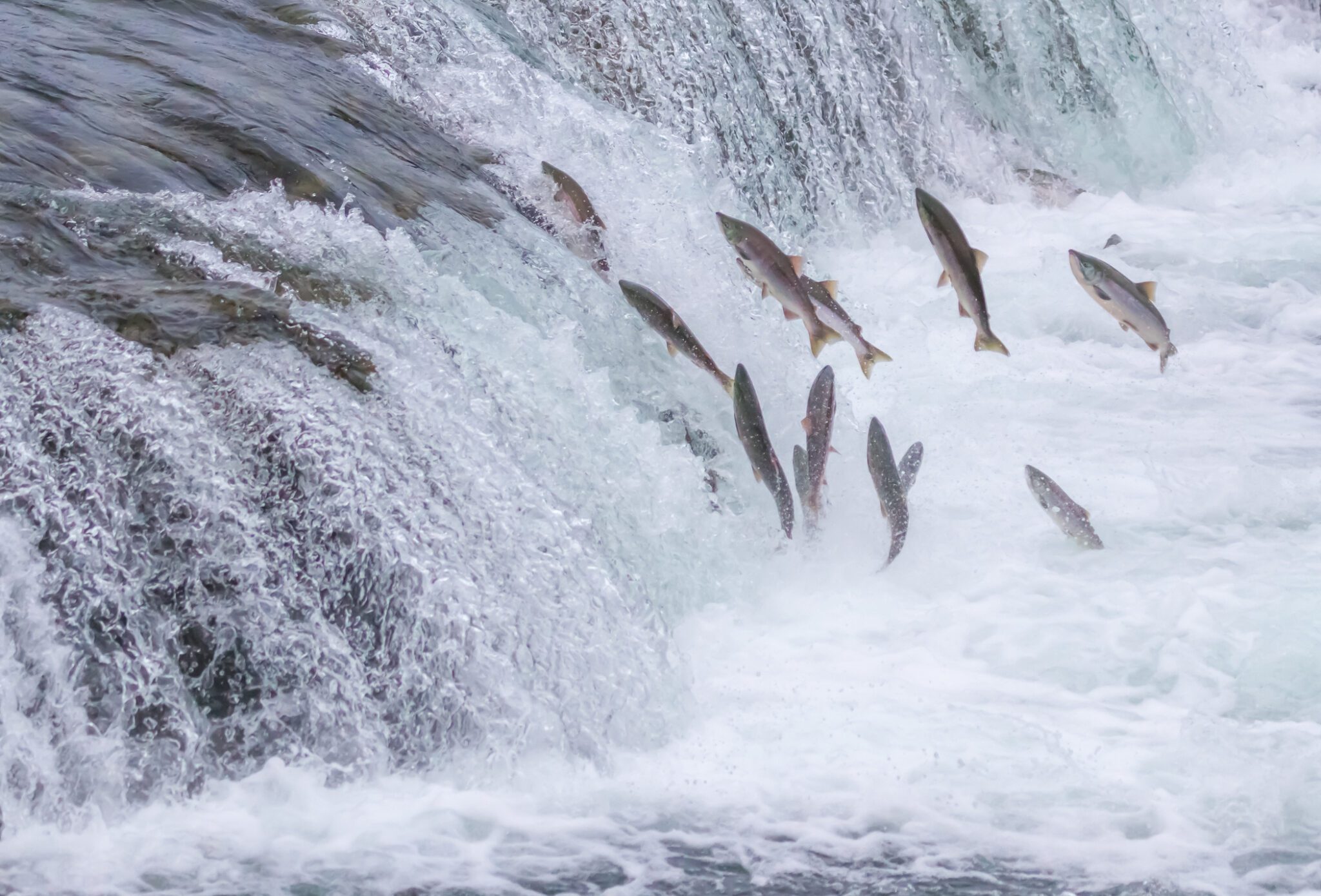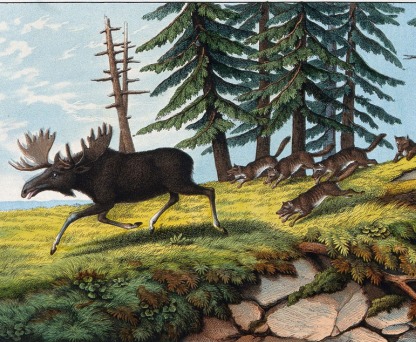A tall yet delicate plant stands on a chalky hillside. It has three pink sepals arranged like a tricorn hat around the most extraordinary flower, a vegetal rendering of a bee, from its pollen-yellow feelers down to the insect’s delicate brown-black fur. It is a work of art without an artist. A blind masterpiece.
This is the sort of thing with which evolutionary process rewards us when a life-form can’t take to the air itself. Sifting through time and generations, nature arrives at a plant that looks and smells like a creature with the gift of flight.
The bee orchid, Orphrys apifera, mimics its namesake to encourage what biologists call “pseudocopulation” – in other words, the bee is tricked into attempting to mate with the flower and, in so doing, lifts a little of the plant’s pollen, which is then deposited in another unrequited tryst on a different bee orchid, enabling the plant to reproduce.
-

Orphrys apifera © Hans Hillewaert
Darwin was fascinated by this kind of sexual deception in nature. What struck him was that the plant had evolved to exploit the agency of another entity. What he meant by this was that the reliable and yet intelligent actions of the bee, its determined buzzing about in search of food and opportunities, created the advantage on which evolutionary process might have an effect. The presence of the bee and its reason to be mattered.
And yet, by the middle of the twentieth century, standard biological and evolutionary theory had purged itself of the organism and its pursuits. Life was but the jostle of genes, the chance survival of those bits of biological information that carried an advantage for the offspring. The activities of the individual organisms were lost from sight.
For most of us, what marks out a living being is its purposive qualities. From humans to honeybees, biological entities strive to pursue their goals. And this special activity is everywhere. Indeed, for some researchers, including me, agency – the ability to act for one’s own reasons – is the essential difference between life and non-life. “Living organisms are something unique,” writes Jonathan Delafield-Butt, a researcher on perception and action, “because they generate their own causal power… [T]hey organise their movement with self-generated force, guided through self-generated agency.”
Life strives as a fundamental, fully integrated holistic process. And this helps make sense of what unites paramecium with parrots. Likewise, it helps us understand what differs between a virus and an animal. Viruses, like cyclones or crystals, differ from life proper because, despite their self-organization, they lack autonomy. Living beings strive freely because they evolved to sustain their self-organization. In this way, they are the originators of their own actions.
Given this exceptional aspect of life on Earth, why has much of biological science for the past seventy years sought to side-line the importance of purpose in biology? Philosopher Alan Love, the principal investigator of a new research hub on purposiveness in nature, believes the neglect emerged from a strand of reductionism that began with nineteenth century physiologists and reached its zenith in the field of population genetics in the twentieth century. The reductionist and gene-centred view of evolution is an elegant and serviceable one, Love told me, but it creates a “cause without a cause,” where the activities of the life-forms themselves can largely be left out of formal understandings of life. The philosopher Denis Walsh, author of the pathfinding book Organisms, Agency and Evolution, calls this the “deteleologised worldview” that has displaced organisms and their agency from their central place in the living world.
But biology isn’t the only domain in which the organism has disappeared. Over hundreds of years of philosophy, especially in understandings of freedom and identity, the organism as a whole has been marginalized. Centuries worth of debate about the possibility of human freedom in a mechanistic world have left us with a problematic dualism, which privileges not only the brain over the body, but also certain limited capacities of mental life. Some of this can be understood as a corollary to the drive towards reductionism.
As science promised to provide causal explanations for biology, it also precipitated anxieties about the meaning and value of human life. If everything is determined at the molecular level, how can anyone be said to have free will?
For Descartes, unique human mental experience came to the rescue. The human mind is the true seat of agency, while the human body is only an engine to be cast off at the ascent of the spirit to heaven. In this way, a reductionist worldview could be supported, while still retaining the possibility of human freedom. And, as only humans could act freely in the world by means of their rationality, then the rest of the living world was just so much machinery.
Today, we still rehearse the same arguments. In a post-religious, scientific worldview, free will is often spoken about as an illusion. Simultaneously, the meaning of our lives and moral status is aligned with our conscious, subjective experience as if we are a mental essence imprisoned in a box of flesh. Many flavours of human exceptionalism originate in this kind of dualism, which has, in turn, been instituted in moral concepts, privileges, and even in law. But what if it’s wrong?
Philosopher Jessica Wahman traces an alternative line of thinking from John Dewey and George Santayana back to Aristotle, who, she argues, associates the whole organism with agency, rather than self-awareness or subjective consciousness, thereby undermining a dualism that privileges mental experience. Aristotle was a hierarchical thinker, who isolated human rationality as a “stronger” form of agency; nevertheless, this agency was determined by the whole body of the living being. Later views reserviced this Aristotelian notion of the “psyche” (rather like “soul” but without the dualism) to arrive at a conception of agency that considers the entirety of the organism and its activities.
“Not unlike Aristotle’s notion of the form of a living thing,” Wahman writes, “a psyche is a means by which matter organizes itself. It is a general term for the host of habitual practices that keep an organism alive and allow it to grow and reproduce. Everything from cellular maintenance and reproduction to bodily homeostasis to daily routines and conscious reflection is representative of the habitual rhythms of this vital principle. Our psyches amount to the wellspring of our experiences and behaviors and so are the agents of thought, feeling, and action.”
But a re-centring of agency as the fundamental, unique, and shared property of living organisms calls into question the sharp division between humans and other animals.
If freedom and identity claims consider the whole, dynamic body, the psyche of the organism, then our moral compass shifts. When we acknowledge a life-form’s dynamic ability to drive internal and external changes, and to originate events that have a purpose particular to that life-form, then we must accept that this being is capable of defining their own good. This capacity then grounds the moral considerability of that organism.
Meanwhile, in evolutionary biology, the dissent against reductionism is growing. Recently, Oxford biologists Denis Noble and Richard Dawkins debated “what drives evolution” at a festival in Britain. It caused quite a stir. For Noble, best known for his work on heart rhythm, the organism is the subject of selection. For Dawkins, evolutionary process selects the gene and recognizes the events of an organism’s lifetime only in so far as survival and reproduction facilitate the genes that become frequent. Yet, for Noble, there is new evidence that some changes in gene function, originating from the internal and external activities of the organism, can pass into the germ line. For Noble, an organism’s agency is crucial.
It is in this atmosphere of reappraisal that some exciting new work is underway. In his excellent overview of biological agency, science writer Philip Ball responds to some new trends in biological sciences to devise theories and models of what agency is and how it arises. This kind of work is being driven, in part, by those who have pushed back against the erasure of organisms and their agency from our understandings of evolutionary process.
“Agency evolves precisely because living organisms are liable to encounter challenges that evolution itself is too slow to adapt to,”
writes Ball. This generates the tension with standard evolutionary theory. In the gene-centred view, it’s all chance, but in the organismal view, there is the potential for agents to have “some say in their own fitness” through internal change.
And there is another way that the agency of life-forms makes a difference. As Walsh writes, “evolution, properly construed, is not so much a molecular phenomenon as an ecological one. It arises out of what organisms do in the pursuit of their ways of life.” Delafield-Butt has argued along similar lines: “Agent action is critical for the choices that drive evolution.”
Consider movement. The river that flows and carries nutrient-rich waters cannot change direction of its own accord. But it is different for salmon. Salmon, as ecologist Dana Warren once put it to me, are “positive disruptors of the normal physics of the environment.” Salmon are self-directing agents that can choose to move against gradients, shifting nutrients to different parts of the river system.
-

Salmon migration
It is this kind of purposeful, flexible action and the complex relationships between organisms that interests me. In my studies of our intellectual histories of humans and the living world, I was struck by the curious absence of the intelligence and autonomy of organisms in biological papers. How could we speak of ecosystems and model them, and yet leave out the agency at the heart of these systems? I was equally perplexed by the line of thinking that viewed agency as a solely mental or even human attribute – what philosopher Helen Steward has challenged as the “over-mentalization” of agency.
Today, we face a biodiversity crisis driven by human choices and our exploitation of environments and other animals. In conservation work, we often privilege species and populations, and, in some initiatives like seedbanks, the genetic stock. What is not considered is the individual agent within an ecosystem or their rights to freedom. What is not considered is the distinct cultures of populations of animals that arise through lifetimes and locales. What is not considered is the rights of organisms to relate to and learn from each other. We look at ecosystems as nutrient cycles and energy flows, and measures of population numbers and food distribution. We don’t look at what we might call “psychosystems”, the intelligent interplay of agents within an environment, their fields of choice, their degrees of freedom, and their dynamics. We don’t look at the health of the “psychosphere”.
This is hardly surprising. Properly considering the agency of living beings generates moral questions of novel kinds. If we take seriously that life is purposeful in its nature, and that this purpose throughout biology has evolved over time into highly species-specific forms, then we can recognize that just as these agents experience the world in unique ways, they can also be harmed in unique ways. These harms might best be understood as agent-based harms – harms specific not just to conscious entities or those capable of feeling pain, or even sentient organisms, as we’ve tended to preference up to now, but harms that originate in agency as the fundamental principle of being. As noted by the legal scholar Martha Nussbaum,
“the important thing is being able to influence the conditions that govern one’s own life by one’s own agency.”
If we believe agency reaches everywhere in biological life, then that complicates our moral divisions.
And there are other harms that follow from a proper understanding of purpose in biology. Frontier biotechnologies, like CRISPR/Cas9 gene-editing, make it possible for humans to instrumentalize organisms and bias their development in radical new ways. Agent-based harms make it easier for us to understand the conflicts that might arise when we infringe on the autonomy of an organism in its whole quality.
Our world is an entangled bed of agents, whose dynamic relationships co-create a resilient, robust planet. Humans, of course, with their strong, subjective consciousness, pursue end-directed activities, but in such a way as to be largescale disruptors of any fairtrade of intentions. Indeed, we are on the brink – though not quite yet – of being the intelligent designers of life on Earth. This should give us pause.
Reflecting on the bee and the bee orchid, a focus on agency in biology restores the organism as a self-sustaining, goal-directed entity. As Albert Schweitzer put it, “I am life that wills to live in the midst of life that wills to live.” Organisms, in pursuing their goals, make value-based choices. As such, they make our world, our planet, a meaningful one. In undermining the value of organisms and their agency, we strip our own world of its value too. It is time to foreground organisms in their wilful beauty. It is time to recognize the rebellious autonomy of our living world.
Melanie Challenger studies the history of ideas about the living world. Her books include ‘How to Be Animal: What it means to be human’ and ‘Animal Dignity: Philosophical Reflections on Non-human Existence’. She’s the current Deputy Co-Chair of the Nuffield Council on Bioethics and hosts the podcast The Psychosphere on intelligence and agency in nature.





